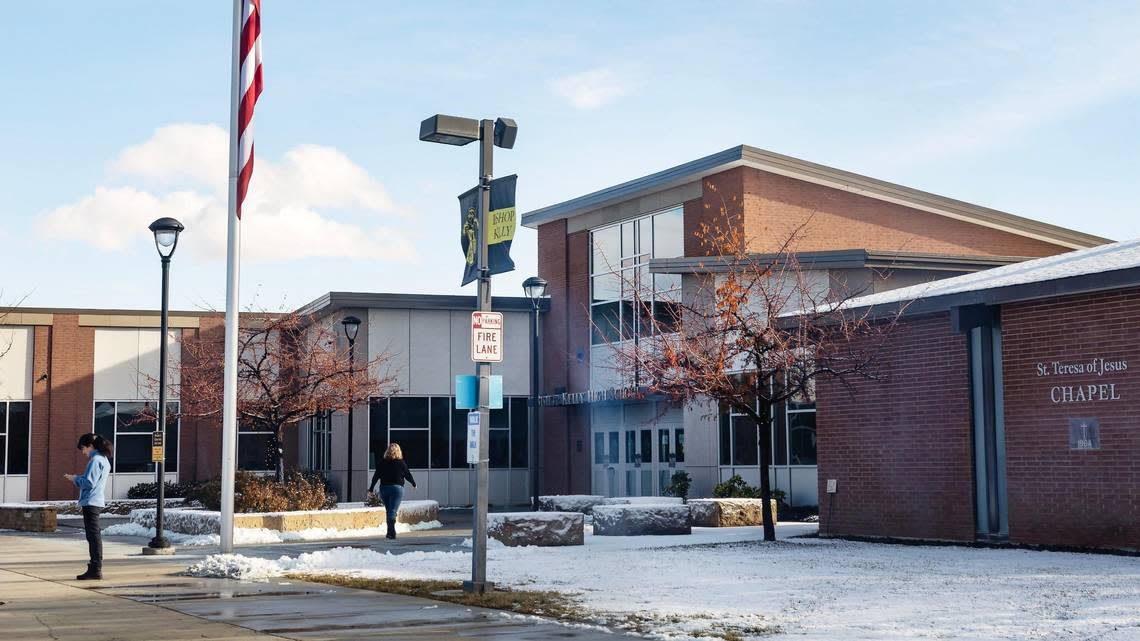Republicans propose letting state fund religious schools with Idaho Constitution change

This is a breaking news story. Check back to idahostatesman.com for updates.
To sign up for breaking news alerts, click here.
Two Republican lawmakers proposed a joint resolution to repeal a section of the Idaho Constitution that prohibits the state from giving money to religious schools or institutions.
The section, called “sectarian appropriations,” dates from the constitution’s approval in 1890. It forbids the state or any municipal governments in Idaho from appropriating any public money to help a religious or other sect or institution and from donating land to such groups. The section has an exemption for health care centers operated by religious institutions, which the state is allowed to finance with leases, loans or other assistance.
Such a change would also need voter approval. Amending the state constitution requires two-thirds support in both chambers of the Legislature and majority support from voters, according to Idaho law.
Rep. Elaine Price, R-Coeur d’Alene, who co-sponsored the resolution, said the constitutional provision has been “nullified” by U.S. Supreme Court decisions. A 2022 decision by the high court reduced the separation between church and state by ruling against a Maine education program that prevented high school students from using the state’s funds to attend religious schools. The state allowed students in rural districts without public high schools to use state funds for private schools, so long as they were not religious.
A 2020 decision also overruled a nonsectarian section of Montana’s state constitution, which prevented religious schools from receiving state scholarship funds. Both decisions have come from a Supreme Court that has swung to the right in recent years following justice appointments from Republican presidents. Those justices have ruled in several instances to reduce boundaries between religion and public life.
Thirty-seven states have nonsectarian provisions, which are often called Blaine amendments and are named after former House Speaker James G. Blaine, according to the New York Times.
Price co-sponsored the resolution with Sen. Brian Lenney, R-Nampa. Price said the Supreme Court has ruled that “you cannot discriminate. If you give to private schools who are not religious, then you also have to give to religious schools as well.”
Rep. Colin Nash, D-Boise, asked Price at the hearing why the Supreme Court’s cases would apply in Idaho.
“I only think this is null and void if you’re giving money to private schools,” he said. “And it’s not my understanding that we’re giving money to private schools right now.”
Price said the state does give money to such schools, through scholarships or grants. She said the sectarian section of the Idaho Constitution currently prohibits the Legislature from passing laws to allow public funds to be spent on religious schools, and that “if we remove this, then that does not come into play.”
A Blaine Amendment resolution last year failed to make it out of a committee. Republican lawmakers have also proposed bills in recent years to give public dollars to students who attend private or religious schools, through programs like education savings accounts — also known as vouchers — or, most recently, a tax rebate proposal.
Rep. John Gannon, D-Boise, told the committee he had “huge reservations” about the resolution because of the capaciousness of the term “religious.”
“There’s about 100 different groups that claim to be religious, and if you start opening up this equal allocation of funds ... it makes me very, very uncomfortable,” he said.


